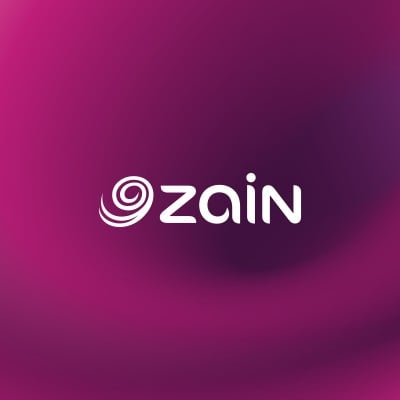Company Details
telenor-group
22,731
521,666
517
telenor.com
11
TEL_2710109
Completed


Telenor Company CyberSecurity Posture
telenor.comEMPOWERING SOCIETIES. CONNECTING YOU TO WHAT MATTERS MOST. Telenor Group is a leading telecommunications company across the Nordics and Asia with 158 million subscribers and annual sales of around NOK 99 billions (2022). We are committed to responsible business conduct and driven by the ambition of empowering societies. Connectivity has been Telenor’s domain for more than 165 years, and our purpose is to connect our customers to what matters most. We have four behaviours that guide the way we work: • Always Explore. We believe growth comes from learning every day. We’re curious and we dare to challenge, test, fail fast and pivot. • Create together. We believe diverse teams find better solutions. We seek different perspectives, share, involve and help each other succeed. • Keep promises. We believe that trust is key in all our relationships. We take ownership and pride in delivering with precision and integrity. • Be respectful. We believe in the unique human ability to understand what matters for people. We meet everyone at eye level, listen and show that we care. Telenor is listed at Oslo Stock Exchange under the ticker TEL. For more information, please visit www.telenor.com.
Company Details
telenor-group
22,731
521,666
517
telenor.com
11
TEL_2710109
Completed
Between 750 and 799

 Telenor Global Score (TPRM)
Telenor Global Score (TPRM)XXXX

Description: In January 2022, Space Norway’s Svalbard Undersea Cable System the world’s northernmost subsea fiber-optic cables connecting mainland Norway to the Svalbard archipelago suffered deliberate sabotage. The damage occurred in a deep-sea section (980ft to 9,000ft depth) where cables are typically buried six feet below the seabed, yet were severed by suspected Russian hybrid warfare tactics. Norwegian police confirmed 'human impact' as the cause, while open-source investigations revealed Russian trawlers made over a dozen passes over the cable route before the outage. Though redundant systems prevented service disruption for Svalbard’s users (including critical Arctic research stations and satellite ground stations), the attack demonstrated vulnerabilities in NATO’s northern infrastructure. The incident aligned with broader Russian strategies to test allied responses, disrupt communications, and exploit undersea infrastructure as a geopolitical pressure point. No perpetrators were prosecuted due to lack of direct evidence, but the pattern mirrored other Baltic Sea cable sabotage linked to Russia’s shadow fleet, reinforcing concerns over critical infrastructure resilience in the High North.


No incidents recorded for Telenor in 2026.
No incidents recorded for Telenor in 2026.
No incidents recorded for Telenor in 2026.
Telenor cyber incidents detection timeline including parent company and subsidiaries

EMPOWERING SOCIETIES. CONNECTING YOU TO WHAT MATTERS MOST. Telenor Group is a leading telecommunications company across the Nordics and Asia with 158 million subscribers and annual sales of around NOK 99 billions (2022). We are committed to responsible business conduct and driven by the ambition of empowering societies. Connectivity has been Telenor’s domain for more than 165 years, and our purpose is to connect our customers to what matters most. We have four behaviours that guide the way we work: • Always Explore. We believe growth comes from learning every day. We’re curious and we dare to challenge, test, fail fast and pivot. • Create together. We believe diverse teams find better solutions. We seek different perspectives, share, involve and help each other succeed. • Keep promises. We believe that trust is key in all our relationships. We take ownership and pride in delivering with precision and integrity. • Be respectful. We believe in the unique human ability to understand what matters for people. We meet everyone at eye level, listen and show that we care. Telenor is listed at Oslo Stock Exchange under the ticker TEL. For more information, please visit www.telenor.com.


We are an award-winning international communications company operating across the Middle East, North Africa and Southeast Asia. Serving consumers and businesses in 10 countries, we deliver a leading data experience through a broad range of content and services via our advanced, data-centric mob

Vivo (Telefônica Brasil) is part of the Telefónica Group and with more than 94 million customers, of which 75 million mobile and 19 million fixed, we are the largest telecommunications company in Brazil, with nationwide presence and a complete, convergent portfolio of products, combining fixed, mobi

תכירו את השחקנים הראשיים שלנו: העובדות והעובדים. אנחנו לא עובדים עם תסריט קבוע, חושבים מחוץ לקופסא, ומייצרים ז'אנר משלנו. כש-יס קמה, בשנת 1998, הבאנו את בשורת הלווין אל עולם שידורי הטלוויזיה והיינו הראשונים להציע שידורים דיגיטליים ושירותי טלוויזיה אינטראקטיביים - כשבחירת התכנים היא בידיים של הלקוח

Zain Group is a leading provider of innovative ICT technologies & digital lifestyle communications operating in 8 markets across the Middle East & Africa, serving 50.9 million active customers as of 30 June 2025. Zain provides mobile voice, data and B2B services in: Kuwait, Bahrain, Iraq, Jordan, Sa

Proximus Group is a provider of future-proof connectivity, IT and digital services, headquartered in Brussels. The Group is actively engaged in building a connected world that people trust, so society blooms. The Domestic segment is focused on providing state-of-the art telecommunications and IT se
Cox Communications is committed to creating more moments of real human connection. We bring people closer to family and friends through technology that’s inspired by a culture that puts people first, and we’re always working to improve life in the communities we serve. Our world-class broadband appl

A TIM é a empresa de telefonia móvel que mais cresce no Brasil. Atualmente, possui mais de 13 mil colaboradores em todo o país que trabalham entregando serviços inovadores e de qualidade em telefonia móvel, fixa e internet banda larga. É uma companhia feita de pessoas criativas, com energia real
Huawei is a leading global provider of information and communications technology (ICT) infrastructure and smart devices. With integrated solutions across four key domains – telecom networks, IT, smart devices, and cloud services – we are committed to bringing digital to every person, home and organi

We believe it’s people who give purpose to our technology. So we’re committed to staying close to our customers and providing them the best experience. And delivering the best tech. On the best network. Because our purpose is to build a connected future so everyone can thrive. We build techno
.png)
Pakistan Telecommunication Company Limited (PTCL) has officially completed the acquisition of 100% shareholding of Telenor Pakistan...
In a world where everything and everyone is connected, the Nordic digital security landscape has grown more complex and uncertain.
PTA approves PTCL's bid to acquire Telenor Pakistan with strict conditions to protect consumers, competition and network quality.
Pakistan AI data centre launches to boost artificial intelligence adoption in healthcare, finance, agriculture, and public safety. Telenor...
Powered by Nvidia enterprise-grade GPUs, data centre to boost artificial intelligence adoption, improve cybersecurity by keeping data within...
Telenor Pakistan has partnered with Data Vault Pakistan to launch the nation's first AI-Ready Sovereign Cloud, providing secure,...
Tele2 and Telenor, through their joint network company Net4Mobility (N4M), have secured new spectrum in the 1800 MHz band in the spectrum auction conducted...
Telenor's share dips to 21.75% before merger with PTCL, while Jazz and Zong expand dominance in Pakistan's telecom market.
On November 7, 2025, the world of public transportation found itself at the intersection of innovation and vulnerability.

Explore insights on cybersecurity incidents, risk posture, and Rankiteo's assessments.
The official website of Telenor is http://www.telenor.com/.
According to Rankiteo, Telenor’s AI-generated cybersecurity score is 794, reflecting their Fair security posture.
According to Rankiteo, Telenor currently holds 0 security badges, indicating that no recognized compliance certifications are currently verified for the organization.
According to Rankiteo, Telenor has not been affected by any supply chain cyber incidents, and no incident IDs are currently listed for the organization.
According to Rankiteo, Telenor is not certified under SOC 2 Type 1.
According to Rankiteo, Telenor does not hold a SOC 2 Type 2 certification.
According to Rankiteo, Telenor is not listed as GDPR compliant.
According to Rankiteo, Telenor does not currently maintain PCI DSS compliance.
According to Rankiteo, Telenor is not compliant with HIPAA regulations.
According to Rankiteo,Telenor is not certified under ISO 27001, indicating the absence of a formally recognized information security management framework.
Telenor operates primarily in the Telecommunications industry.
Telenor employs approximately 22,731 people worldwide.
Telenor presently has no subsidiaries across any sectors.
Telenor’s official LinkedIn profile has approximately 521,666 followers.
Telenor is classified under the NAICS code 517, which corresponds to Telecommunications.
No, Telenor does not have a profile on Crunchbase.
Yes, Telenor maintains an official LinkedIn profile, which is actively utilized for branding and talent engagement, which can be accessed here: https://www.linkedin.com/company/telenor-group.
As of January 21, 2026, Rankiteo reports that Telenor has experienced 1 cybersecurity incidents.
Telenor has an estimated 9,783 peer or competitor companies worldwide.
Incident Types: The types of cybersecurity incidents that have occurred include Cyber Attack.
Detection and Response: The company detects and responds to cybersecurity incidents through an incident response plan activated with nato operation baltic sentry (2024), incident response plan activated with finnish national bureau of investigation (estlink 2 case), incident response plan activated with norwegian police (svalbard cable investigation), and third party assistance with marinetraffic (ship tracking data), third party assistance with open-source intelligence (osint) for trawler movements, and and containment measures with detention of *eagle s* vessel (later released), containment measures with increased maritime patrols (nato assets), and remediation measures with cable repairs (status unspecified), remediation measures with nato-industry collaboration for infrastructure resilience, and recovery measures with swedish military exercises (counter-sabotage drills), recovery measures with enhanced surveillance of undersea cables, and communication strategy with public statements by nato secretary general mark rutte, communication strategy with media interviews with lithuanian fm gabrielius landsbergis, communication strategy with cbs news investigative reports, and enhanced monitoring with nato naval drones and aircraft patrols, enhanced monitoring with national surveillance assets (unspecified)..
Title: Alleged Russian Sabotage of Undersea Cables in the Baltic Sea (2022–2024)
Description: A series of suspected sabotage incidents targeting undersea fiber optic cables in the Baltic Sea, allegedly linked to Russian hybrid warfare tactics. The cables, critical for global internet traffic, financial transactions, and military communications, were damaged in multiple instances, including drag marks from anchors and loitering vessels. Finland, Estonia, Norway (Svalbard), and other Baltic NATO members reported disruptions, with Russia denying involvement. The incidents are part of broader hybrid warfare tactics, including cyberattacks, infrastructure sabotage, and espionage, aimed at testing NATO resolve and intimidating regional populations. NATO launched 'Baltic Sentry' in 2024 to counter these threats.
Date Detected: 2022-01-07
Date Publicly Disclosed: 2022-02-00
Type: Physical Sabotage
Attack Vector: Anchor Dragging (Ships/Trawlers)Underwater Sabotage (Unconfirmed Explosives)Loitering Near Cable RoutesPlausible Deniability via 'Shadow Fleet' Vessels
Vulnerability Exploited: Shallow Depth of Baltic Sea (Ease of Anchor Damage)Unburied or Lightly Buried Cables in Steep TerrainLack of Real-Time Monitoring for Undersea InfrastructureGeopolitical Tensions (NATO Expansion, Ukraine War)
Threat Actor: Primary: Russian State-Affiliated Actors (Alleged)Secondary: ["Russian 'Shadow Fleet' Vessels (e.g., *Eagle S*)", 'Russian Fishing Trawlers (Svalbard Incident)', 'Ukrainian Citizens Linked to Russian Intelligence (Poland Rail Sabotage)']Denial: Russia denies all allegations, labeling them 'Russophobia'
Motivation: Intimidation of Baltic States and NATO AlliesTesting NATO Unity and Response CapabilitiesDisruption of Critical Infrastructure as Hybrid Warfare TacticRetaliation for Western Support of UkrainePotential Prelude to Larger Military Escalation
Common Attack Types: The most common types of attacks the company has faced is Cyber Attack.
Identification of Attack Vectors: The company identifies the attack vectors used in incidents through Anchor Drag Marks (Physical Damage)Vessel Loitering Near Cable Routes (Reconnaissance).

Systems Affected: Estlink 2 (Finland-Estonia Power/Telecom Cable)Svalbard Undersea Cable System (Norway)Unspecified Telecom Cables in Gulf of Finland
Downtime: [{'system': 'Estlink 2', 'duration': 'Partial outage (Christmas 2024)', 'restoration': 'Unknown'}, {'system': 'Svalbard Cable', 'duration': 'Jan 7, 2022 (Redundant cable prevented service loss)', 'restoration': 'Investigation closed (no evidence)'}]
Operational Impact: Reduced Interconnectivity Between Finland and EstoniaIncreased NATO Maritime Patrols (Operation Baltic Sentry)Swedish Military Exercises for Counter-Sabotage
Brand Reputation Impact: Erosion of Trust in Undersea Infrastructure ResiliencePerception of NATO Vulnerability to Hybrid Threats
Legal Liabilities: Finnish Criminal Charges Against *Eagle S* Crew (Dismissed on Appeal)

Entity Name: Finland
Entity Type: Government
Industry: Critical Infrastructure (Energy/Telecom)
Location: Baltic Sea (Gulf of Finland)
Size: National
Customers Affected: Partial outage for Finland-Estonia connectivity

Entity Name: Estonia
Entity Type: Government
Industry: Critical Infrastructure (Energy/Telecom)
Location: Baltic Sea (Gulf of Finland)
Size: National
Customers Affected: Partial outage for Finland-Estonia connectivity

Entity Name: Norway (Space Norway)
Entity Type: State-Owned Enterprise
Industry: Telecommunications
Location: Greenland Sea (Svalbard Cable)
Size: National
Customers Affected: No service loss (redundant cable)

Entity Name: NATO
Entity Type: Military Alliance
Industry: Defense/Critical Infrastructure Protection
Location: Baltic Sea Region
Size: Multinational
Customers Affected: Increased operational burden (Baltic Sentry)

Incident Response Plan Activated: ['NATO Operation Baltic Sentry (2024)', 'Finnish National Bureau of Investigation (Estlink 2 Case)', 'Norwegian Police (Svalbard Cable Investigation)']
Third Party Assistance: Marinetraffic (Ship Tracking Data), Open-Source Intelligence (Osint) For Trawler Movements.
Containment Measures: Detention of *Eagle S* Vessel (Later Released)Increased Maritime Patrols (NATO Assets)
Remediation Measures: Cable Repairs (Status Unspecified)NATO-Industry Collaboration for Infrastructure Resilience
Recovery Measures: Swedish Military Exercises (Counter-Sabotage Drills)Enhanced Surveillance of Undersea Cables
Communication Strategy: Public Statements by NATO Secretary General Mark RutteMedia Interviews with Lithuanian FM Gabrielius LandsbergisCBS News Investigative Reports
Enhanced Monitoring: NATO Naval Drones and Aircraft PatrolsNational Surveillance Assets (Unspecified)
Incident Response Plan: The company's incident response plan is described as NATO Operation Baltic Sentry (2024), Finnish National Bureau of Investigation (Estlink 2 Case), Norwegian Police (Svalbard Cable Investigation), .
Third-Party Assistance: The company involves third-party assistance in incident response through MarineTraffic (Ship Tracking Data), Open-Source Intelligence (OSINT) for Trawler Movements, .
Prevention of Data Exfiltration: The company takes the following measures to prevent data exfiltration: Cable Repairs (Status Unspecified), NATO-Industry Collaboration for Infrastructure Resilience, .
Handling of PII Incidents: The company handles incidents involving personally identifiable information (PII) through by detention of *eagle s* vessel (later released), increased maritime patrols (nato assets) and .
Data Recovery from Ransomware: The company recovers data encrypted by ransomware through Swedish Military Exercises (Counter-Sabotage Drills), Enhanced Surveillance of Undersea Cables, .

Legal Actions: Finnish Criminal Case Against *Eagle S* Crew (Dismissed),
Regulatory Notifications: NATO Coordination Under Article 5 (Potential Future Trigger)
Ensuring Regulatory Compliance: The company ensures compliance with regulatory requirements through Finnish Criminal Case Against *Eagle S* Crew (Dismissed), .

Lessons Learned: Undersea Cables Are Vulnerable to Physical Sabotage in Shallow Waters, Hybrid Warfare Blurs Lines Between Cyber, Physical, and Psychological Attacks, Plausible Deniability via 'Shadow Fleet' Complicates Attribution, NATO Unity Is Critical to Deterring Further Escalation, Redundant Infrastructure Mitigates Operational Impact (e.g., Svalbard Cables)

Recommendations: Increase Real-Time Monitoring of Undersea Cables with AI/ML Anomaly Detection, Deepen NATO-Industry Collaboration for Infrastructure Hardening, Clarify Thresholds for Invoking Article 5 in Hybrid Warfare Scenarios, Expand Maritime Domain Awareness in the Baltic Sea, Develop Rapid-Response Protocols for Cable Sabotage IncidentsIncrease Real-Time Monitoring of Undersea Cables with AI/ML Anomaly Detection, Deepen NATO-Industry Collaboration for Infrastructure Hardening, Clarify Thresholds for Invoking Article 5 in Hybrid Warfare Scenarios, Expand Maritime Domain Awareness in the Baltic Sea, Develop Rapid-Response Protocols for Cable Sabotage IncidentsIncrease Real-Time Monitoring of Undersea Cables with AI/ML Anomaly Detection, Deepen NATO-Industry Collaboration for Infrastructure Hardening, Clarify Thresholds for Invoking Article 5 in Hybrid Warfare Scenarios, Expand Maritime Domain Awareness in the Baltic Sea, Develop Rapid-Response Protocols for Cable Sabotage IncidentsIncrease Real-Time Monitoring of Undersea Cables with AI/ML Anomaly Detection, Deepen NATO-Industry Collaboration for Infrastructure Hardening, Clarify Thresholds for Invoking Article 5 in Hybrid Warfare Scenarios, Expand Maritime Domain Awareness in the Baltic Sea, Develop Rapid-Response Protocols for Cable Sabotage IncidentsIncrease Real-Time Monitoring of Undersea Cables with AI/ML Anomaly Detection, Deepen NATO-Industry Collaboration for Infrastructure Hardening, Clarify Thresholds for Invoking Article 5 in Hybrid Warfare Scenarios, Expand Maritime Domain Awareness in the Baltic Sea, Develop Rapid-Response Protocols for Cable Sabotage Incidents
Key Lessons Learned: The key lessons learned from past incidents are Undersea Cables Are Vulnerable to Physical Sabotage in Shallow Waters,Hybrid Warfare Blurs Lines Between Cyber, Physical, and Psychological Attacks,Plausible Deniability via 'Shadow Fleet' Complicates Attribution,NATO Unity Is Critical to Deterring Further Escalation,Redundant Infrastructure Mitigates Operational Impact (e.g., Svalbard Cables).

Source: Royal United Services Institute (RUSI)
URL: https://rusi.org
Date Accessed: 2024-11-00

Source: Finnish National Bureau of Investigation
URL: https://poliisi.fi
Date Accessed: 2024-10-00

Source: Space Norway (Svalbard Cable Operator)
Date Accessed: 2022-01-00

Source: NATO Press Release (Operation Baltic Sentry)
URL: https://www.nato.int
Date Accessed: 2024-01-00
Additional Resources: Stakeholders can find additional resources on cybersecurity best practices at and Source: CBS NewsUrl: https://www.cbsnews.comDate Accessed: 2024-11-00, and Source: Royal United Services Institute (RUSI)Url: https://rusi.orgDate Accessed: 2024-11-00, and Source: Finnish National Bureau of InvestigationUrl: https://poliisi.fiDate Accessed: 2024-10-00, and Source: Space Norway (Svalbard Cable Operator)Url: https://spacenorway.noDate Accessed: 2022-01-00, and Source: NATO Press Release (Operation Baltic Sentry)Url: https://www.nato.intDate Accessed: 2024-01-00.

Investigation Status: [{'case': 'Estlink 2 (Finland-Estonia)', 'status': 'Criminal Charges Dismissed (Prosecutors Appealing)'}, {'case': 'Svalbard Cable (Norway)', 'status': 'Closed (Lack of Evidence)'}, {'case': 'Polish Rail Sabotage', 'status': 'Ongoing (Suspects Identified)'}]
Communication of Investigation Status: The company communicates the status of incident investigations to stakeholders through Public Statements By Nato Secretary General Mark Rutte, Media Interviews With Lithuanian Fm Gabrielius Landsbergis and Cbs News Investigative Reports.

Stakeholder Advisories: Nato Members Urged To Enhance Critical Infrastructure Protection, Baltic States Advised To Diversify Connectivity Routes, Energy And Telecom Sectors Warned Of Hybrid Threats.
Advisories Provided: The company provides the following advisories to stakeholders and customers following an incident: were Nato Members Urged To Enhance Critical Infrastructure Protection, Baltic States Advised To Diversify Connectivity Routes and Energy And Telecom Sectors Warned Of Hybrid Threats.

Entry Point: Anchor Drag Marks (Physical Damage), Vessel Loitering Near Cable Routes (Reconnaissance),
Reconnaissance Period: ['Svalbard Incident: >12 Trawler Passes Before Damage', 'Eagle S: Departed Ust-Luga on Day of Outage']
High Value Targets: Estlink 2 (Finland-Estonia Interconnect), Svalbard Cable (Northernmost Subsea System), Baltic Nato Members' Limited Redundancy,
Data Sold on Dark Web: Estlink 2 (Finland-Estonia Interconnect), Svalbard Cable (Northernmost Subsea System), Baltic Nato Members' Limited Redundancy,

Root Causes: Geopolitical Tensions (Russia-Nato, Ukraine War), Physical Vulnerability Of Undersea Cables In Shallow Waters, Lack Of Unified Deterrence Against Hybrid Tactics, Plausible Deniability Via Non-State Proxy Vessels,
Corrective Actions: Nato Operation Baltic Sentry (Maritime Patrols), Finnish Appeal Of Dismissed Charges Against *Eagle S* Crew, Swedish Counter-Sabotage Military Exercises, Proposed Nato Article 5 Clarifications For Hybrid Attacks,
Post-Incident Analysis Process: The company's process for conducting post-incident analysis is described as Marinetraffic (Ship Tracking Data), Open-Source Intelligence (Osint) For Trawler Movements, , Nato Naval Drones And Aircraft Patrols, National Surveillance Assets (Unspecified), .
Corrective Actions Taken: The company has taken the following corrective actions based on post-incident analysis: Nato Operation Baltic Sentry (Maritime Patrols), Finnish Appeal Of Dismissed Charges Against *Eagle S* Crew, Swedish Counter-Sabotage Military Exercises, Proposed Nato Article 5 Clarifications For Hybrid Attacks, .
Last Attacking Group: The attacking group in the last incident were an Primary: Russian State-Affiliated Actors (Alleged)Secondary: ["Russian 'Shadow Fleet' Vessels (e.g., *Eagle S*)", 'Russian Fishing Trawlers (Svalbard Incident)', 'Ukrainian Citizens Linked to Russian Intelligence (Poland Rail Sabotage)']Denial: Russia denies all allegations and labeling them 'Russophobia'.
Most Recent Incident Detected: The most recent incident detected was on 2022-01-07.
Most Recent Incident Publicly Disclosed: The most recent incident publicly disclosed was on 2022-02-00.
Most Significant System Affected: The most significant system affected in an incident was Estlink 2 (Finland-Estonia Power/Telecom Cable)Svalbard Undersea Cable System (Norway)Unspecified Telecom Cables in Gulf of Finland.
Third-Party Assistance in Most Recent Incident: The third-party assistance involved in the most recent incident was marinetraffic (ship tracking data), open-source intelligence (osint) for trawler movements, .
Containment Measures in Most Recent Incident: The containment measures taken in the most recent incident was Detention of *Eagle S* Vessel (Later Released)Increased Maritime Patrols (NATO Assets).
Most Significant Legal Action: The most significant legal action taken for a regulatory violation was Finnish Criminal Case Against *Eagle S* Crew (Dismissed), .
Most Significant Lesson Learned: The most significant lesson learned from past incidents was Redundant Infrastructure Mitigates Operational Impact (e.g., Svalbard Cables).
Most Significant Recommendation Implemented: The most significant recommendation implemented to improve cybersecurity was Develop Rapid-Response Protocols for Cable Sabotage Incidents, Expand Maritime Domain Awareness in the Baltic Sea, Deepen NATO-Industry Collaboration for Infrastructure Hardening, Increase Real-Time Monitoring of Undersea Cables with AI/ML Anomaly Detection and Clarify Thresholds for Invoking Article 5 in Hybrid Warfare Scenarios.
Most Recent Source: The most recent source of information about an incident are Space Norway (Svalbard Cable Operator), CBS News, Royal United Services Institute (RUSI), NATO Press Release (Operation Baltic Sentry) and Finnish National Bureau of Investigation.
Most Recent URL for Additional Resources: The most recent URL for additional resources on cybersecurity best practices is https://www.cbsnews.com, https://rusi.org, https://poliisi.fi, https://spacenorway.no, https://www.nato.int .
Current Status of Most Recent Investigation: The current status of the most recent investigation is [{'case': 'Estlink 2 (Finland-Estonia)', 'status': 'Criminal Charges Dismissed (Prosecutors Appealing)'}, {'case': 'Svalbard Cable (Norway)', 'status': 'Closed (Lack of Evidence)'}, {'case': 'Polish Rail Sabotage', 'status': 'Ongoing (Suspects Identified)'}].
Most Recent Stakeholder Advisory: The most recent stakeholder advisory issued was NATO Members Urged to Enhance Critical Infrastructure Protection, Baltic States Advised to Diversify Connectivity Routes, Energy and Telecom Sectors Warned of Hybrid Threats, .
Most Recent Reconnaissance Period: The most recent reconnaissance period for an incident was Svalbard Incident: >12 Trawler Passes Before DamageEagle S: Departed Ust-Luga on Day of Outage.
.png)
SummaryA command injection vulnerability (CWE-78) has been found to exist in the `wrangler pages deploy` command. The issue occurs because the `--commit-hash` parameter is passed directly to a shell command without proper validation or sanitization, allowing an attacker with control of `--commit-hash` to execute arbitrary commands on the system running Wrangler. Root causeThe commitHash variable, derived from user input via the --commit-hash CLI argument, is interpolated directly into a shell command using template literals (e.g., execSync(`git show -s --format=%B ${commitHash}`)). Shell metacharacters are interpreted by the shell, enabling command execution. ImpactThis vulnerability is generally hard to exploit, as it requires --commit-hash to be attacker controlled. The vulnerability primarily affects CI/CD environments where `wrangler pages deploy` is used in automated pipelines and the --commit-hash parameter is populated from external, potentially untrusted sources. An attacker could exploit this to: * Run any shell command. * Exfiltrate environment variables. * Compromise the CI runner to install backdoors or modify build artifacts. Credits Disclosed responsibly by kny4hacker. Mitigation * Wrangler v4 users are requested to upgrade to Wrangler v4.59.1 or higher. * Wrangler v3 users are requested to upgrade to Wrangler v3.114.17 or higher. * Users on Wrangler v2 (EOL) should upgrade to a supported major version.
Vulnerability in the Oracle VM VirtualBox product of Oracle Virtualization (component: Core). Supported versions that are affected are 7.1.14 and 7.2.4. Easily exploitable vulnerability allows high privileged attacker with logon to the infrastructure where Oracle VM VirtualBox executes to compromise Oracle VM VirtualBox. While the vulnerability is in Oracle VM VirtualBox, attacks may significantly impact additional products (scope change). Successful attacks of this vulnerability can result in takeover of Oracle VM VirtualBox. CVSS 3.1 Base Score 8.2 (Confidentiality, Integrity and Availability impacts). CVSS Vector: (CVSS:3.1/AV:L/AC:L/PR:H/UI:N/S:C/C:H/I:H/A:H).
Vulnerability in the Oracle VM VirtualBox product of Oracle Virtualization (component: Core). Supported versions that are affected are 7.1.14 and 7.2.4. Easily exploitable vulnerability allows high privileged attacker with logon to the infrastructure where Oracle VM VirtualBox executes to compromise Oracle VM VirtualBox. While the vulnerability is in Oracle VM VirtualBox, attacks may significantly impact additional products (scope change). Successful attacks of this vulnerability can result in unauthorized creation, deletion or modification access to critical data or all Oracle VM VirtualBox accessible data as well as unauthorized access to critical data or complete access to all Oracle VM VirtualBox accessible data and unauthorized ability to cause a partial denial of service (partial DOS) of Oracle VM VirtualBox. CVSS 3.1 Base Score 8.1 (Confidentiality, Integrity and Availability impacts). CVSS Vector: (CVSS:3.1/AV:L/AC:L/PR:H/UI:N/S:C/C:H/I:H/A:L).
Vulnerability in the Oracle VM VirtualBox product of Oracle Virtualization (component: Core). Supported versions that are affected are 7.1.14 and 7.2.4. Easily exploitable vulnerability allows high privileged attacker with logon to the infrastructure where Oracle VM VirtualBox executes to compromise Oracle VM VirtualBox. While the vulnerability is in Oracle VM VirtualBox, attacks may significantly impact additional products (scope change). Successful attacks of this vulnerability can result in takeover of Oracle VM VirtualBox. CVSS 3.1 Base Score 8.2 (Confidentiality, Integrity and Availability impacts). CVSS Vector: (CVSS:3.1/AV:L/AC:L/PR:H/UI:N/S:C/C:H/I:H/A:H).
Vulnerability in the Oracle VM VirtualBox product of Oracle Virtualization (component: Core). Supported versions that are affected are 7.1.14 and 7.2.4. Easily exploitable vulnerability allows high privileged attacker with logon to the infrastructure where Oracle VM VirtualBox executes to compromise Oracle VM VirtualBox. While the vulnerability is in Oracle VM VirtualBox, attacks may significantly impact additional products (scope change). Successful attacks of this vulnerability can result in takeover of Oracle VM VirtualBox. CVSS 3.1 Base Score 8.2 (Confidentiality, Integrity and Availability impacts). CVSS Vector: (CVSS:3.1/AV:L/AC:L/PR:H/UI:N/S:C/C:H/I:H/A:H).

Get company history
















Every week, Rankiteo analyzes billions of signals to give organizations a sharper, faster view of emerging risks. With deeper, more actionable intelligence at their fingertips, security teams can outpace threat actors, respond instantly to Zero-Day attacks, and dramatically shrink their risk exposure window.
Identify exposed access points, detect misconfigured SSL certificates, and uncover vulnerabilities across the network infrastructure.
Gain visibility into the software components used within an organization to detect vulnerabilities, manage risk, and ensure supply chain security.
Monitor and manage all IT assets and their configurations to ensure accurate, real-time visibility across the company's technology environment.
Leverage real-time insights on active threats, malware campaigns, and emerging vulnerabilities to proactively defend against evolving cyberattacks.




